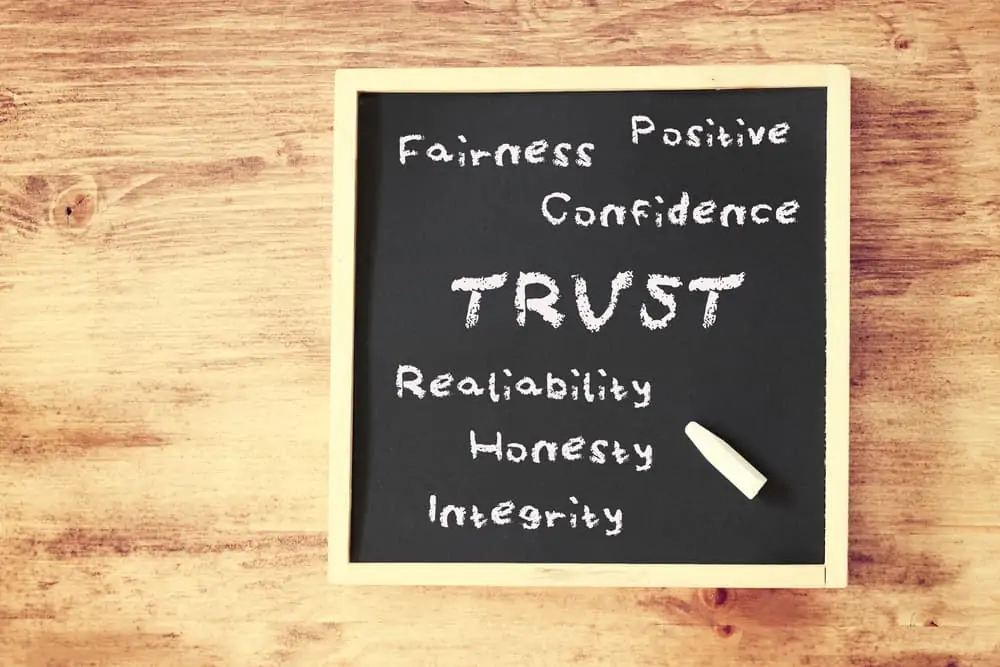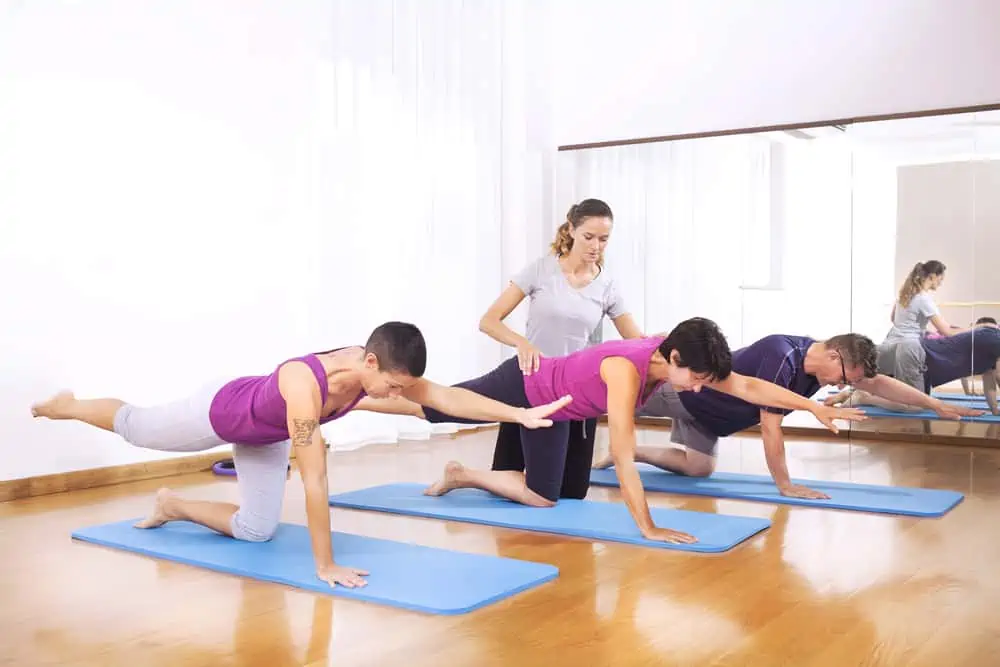Nowadays, health and fitness “advice” seems to be everywhere.
While there is a lot of high-quality information you can access, there’s also a lot of crap.
This is especially true on social media. Influencers and consultants prey on people, especially when the traditional health system has failed them and they’re left searching for their own answers.
Today let’s talk about some easy ways you can spot bad fitness advice online, advocate for yourself, and ensure you don’t get swindled.
Where you get your information is important
Let me back up and tell you a story. Physical therapy school introduced me to the components of evidence-based practice.
For a physical therapist, this decision making process pieces together the best research available, plus experience, and individual considerations to design treatment plans. No two people are the same.
Long story short, we don’t want to just go through the motions or randomly throw things at the wall and see what sticks.
Research changes over time, but the process of collecting and evaluating information is the same. (And any physical therapy student will tell you there’s lots of collecting and evaluating.)
Fast forward and my bookshelves have finally parted with folders upon folders of outdated material. And it turns out, there’s this thing called the internet.
Why should you care?
Every time you fire up Google with those burning questions, you’re collecting and evaluating information to decide what’s right for you.
I’m not saying you need to spend hours in the library like a student or go ten pages deep, but you should do your research and due diligence to decide for yourself.
The key is to start with quality information. Starting out with sketchy details will most certainly affect the outcome.

How to spot bad fitness advice online
I read it on the internet so it must be true. ::sigh::
There are a few things you can look for to evaluate health and fitness information.
Don’t just trust any old site you come across!
Become an information detective with these tips to evaluate health and fitness information.
Look for author credentials
Unless you’re searching for scholarly articles, blogs, and other websites will most certainly land in the results. Anyone with an internet connection can publish online.
Just think about that for a second.
Author credentials are something I look for frequently, no matter what the website. I want to know what qualifications an author brings to the article. When you’re looking for health and fitness information, you should care too.
Hint: they’re usually proudly displayed like the adult version of putting a report card on the refrigerator.
If I can’t find any, that’s kind of a red flag for me.
Here’s a fun example: If I’m looking for information about taking care of puppies, I’d be more likely to look at a site written by a veterinarian or someone who has fostered puppies for 20 years.
Why? Something tells me they might know a thing or two about puppies. Their knowledge probably extends beyond just liking puppies. But you’ll never know if you don’t check.
What’s their reputation?
Nationally recognized institutions, government agencies, universities, non-profit organizations, etc. tend to already have a reputation for being trustworthy.
These are great places to start and to cross-check your facts. You can access the full list on my Resources page.
Here are a few health and fitness examples:
American College of Sports Medicine
Physical Activity Guidelines for Americans
National Institutes of Health (NIH)
Choose PT provided by the APTA
When was it written?
Information evolves, some topics more quickly than others.
Check the date of publication. Try to seek out the most recent information.
One to two years might not make a big difference, but ten years probably will. Again, it depends on the topic.
Double check facts
Don’t believe everything you read! Be skeptical.
Check multiple sources. Are you seeing the same information across multiple sites? Compare with information from trustworthy sites.
Reading several articles on the same topic can also help put together a complete picture that wasn’t visible from just one source.
If something sounds way too good to be true, it probably is.
Beware of biased information
This may come as a shock, but there’s some pretty slanty stuff out there.
What does biased information look like in health and fitness?
Keep an eye out for information that only presents one side or is super PRO but no CON. Informative articles should examine from all angles.
Just because there’s a reference to a research study, that doesn’t automatically make it free of bias. How the study was funded may be a clue.
Biased information pops up in various disguises.
If a whatever-program is the best thing since sliced bread and if you don’t do it, you’ll never reach your goals and be doomed forever. And by the way, you can’t see the research, just this glowing page of testimonials!
I’ll pass, thanks.
And if someone gets salty when asked for proof or when their point of view is questioned, that’s another red flag.

Sounds way too “salesy”
I get it, websites aren’t free, and somebody has to keep the lights on.
But if you’re bombarded with pushy sales pitches – like they have a Brooklyn Bridge to sell you right now! Move along.
You might also find some biased information if the main goal is to hawk products for a quick buck. See above.
Unrealistic promises
If programs are offering what seems like an unrealistic result, probably best to pass.
A good example of this is weight loss programs that claim you’ll lose some astronomical amount of weight in a short time period.
Overall presentation
Here we go, judging a book by its cover.
But, if a website looks like a spammy amateur hour just rolled in, are you likely to trust their information?
Take that a step further, would you trust them with your credit card number? Probably not.
Professional look and feel play a significant role.
Quality of writing
We all make mistakes, but if an article is riddled with spelling mistakes and blatant grammar errors, I’m already gone. That doesn’t scream professional.
Inner monologue quietly hoping karma doesn’t repay me with a typo on this article after my harsh judgment.
Quality of links
Websites frequently include links to other websites or products. These links should add value to your experience.
Association matters and quality material should link to other quality material — not oodles of links that invite you to BOGO whatever (insert flavor of the week) hustle.
Cited references & other resources
Where are they getting their information from? If an article is referencing a study or other works, that should be found somewhere within the article.
Phrases like “a study found” without a link or reference section to cite which study is not very transparent.
Referencing other good quality information to support a topic improves the credibility of the article.
Putting it all together
The internet tends to be the first place we look for information. Even after weeding out questionable sources, it can still be challenging to put all of the pieces together.
Take that background knowledge and discuss it with your qualified health professionals to make informed decisions.
The best part? This is not limited to evaluating health and fitness information! You can apply these same tips to any research as you surf your way around the internet.
Take the good stuff with you and leave the rest where you found it.
Featured image source: VitalikRadko / depositphotos.com








Very good advice. My New Years Resolution is to get a little fitter.
Thank you, good luck with your new fitness routine.
Oooh the “way too salesy” tip is something definitely to look out for. I love that you use your expert knowledge in helping us shift through all the junk online. It’s so good to remember that because you read it online, it’s not necessarily true. This is such a good list to keep in mind. I regularly visit a PT for SI joint dysfunction and should issues so I need to be careful that if I look online that I’m following a good source so I don’t hurt myself more!
Absolutely, thanks for reading and commenting!
This is a great reminder. Honestly there is SO much misinformation circulating the internet disguised to look credible, it’s almost frightening. I personally think that there should be a mandatory class in school specifically focused on teaching kids the skills necessary to weed out quality information from questionable information, if there isn’t already (there wasn’t when I was in school, but the popularity of the internet was just starting to kick off at that point).
Yes, thank you. I hope they are teaching good skills to navigate the internet world.
Thanks Maura. Lots of great information and advice!
Wishing you and yours a very Merry Christmas and a healthy and Happy New Year!
Tim
Thanks Tim!